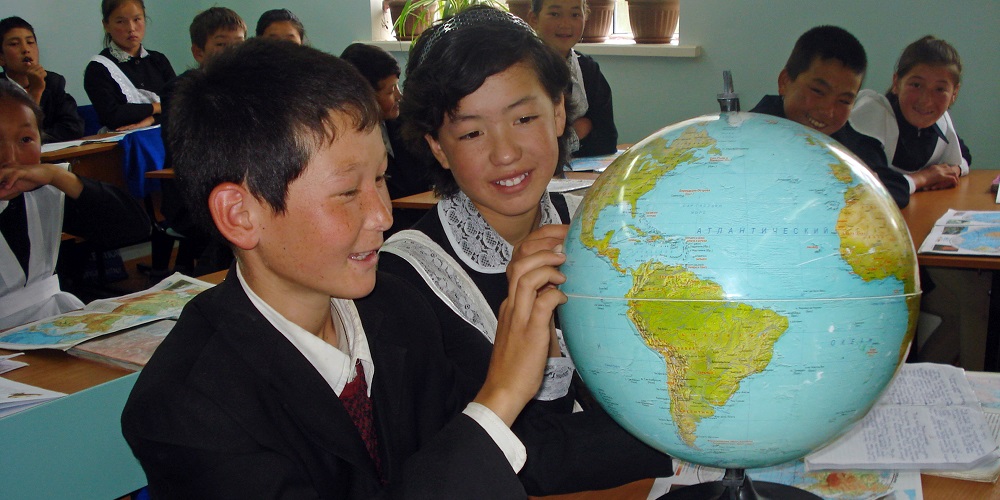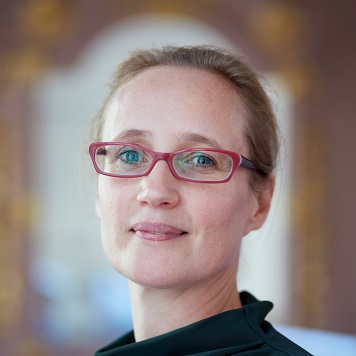
What do you think is at the core of the human development concept?
I would define it as the ability to pursue and realize life goals. And to do that, you need individual capacities as a human being, but you also need a certain societal context that enables you to pursue and realize these life goals. The interaction between individual capacities and the societal context is really important if you want to rethink the idea of human development.
In some of your most recent work you analyze the concepts of self-reliance and human autonomy. Do you think they should be among the key objectives pursued by human development?
For the last couple of years, self-reliance has been a big issue in the Netherlands. It has been a major objective of the government to have a society with as many self-reliant citizens as possible. A society where everyone participates. In our research we took self-reliance as a starting point. Most people want to be self-reliant. However, the immediate cause for our research was the observation that the ability to be self-reliant is not evenly distributed across a population.
It might be worth mentioning that it is not only the government that promotes self-reliance. It is also something that the broader society demands: you have to be employable, stay healthy and exercise. If you get sick, you have to be an active patient and participate in decisions about your health. You have to keep track of your personal finances and think about your pension.
Our study Why knowing what to do is not enough shows that not everyone is capable of self-reliance under every circumstance. There is a difference between what people are expected to do and what they are actually capable of. It is not just a small group of ‘vulnerable’ individuals who have trouble living up to such expectations. Even people with a good education and a favourable position in society can end up feeling overwhelmed, certainly when they are going through a difficult time.
To be self-reliant people need to be able to gather and process information and make a plan. But this is not enough: people also need to take action, cope with setbacks and persevere. We all know that we should exercise. But for a lot of people it is very hard to actually get off the couch to go to the gym. Even more so after a hard day at work. And it is even harder to keep going over time. We call this the capacity to act.
Do you think this approach is taken in consideration in policymaking at the moment?
In the Netherlands, our report was quite influential. When the Scientific Council for Government Policy publishes a report with advice to the government, the Dutch government is obliged to write a formal response in the form of a memorandum to parliament. Its response included the commitment to adopt a more realistic perspective of what citizens or people can do. The government also agreed that new policies would be tested, with what we call the ‘capacity to act test’. The test consists of a list of questions that help to check whether the policy or legislation is based on realistic assumptions about people’s mental resilience.
Extrapolating this approach of the capacity to act and the interface between capacity to think and capacity to act, do you think these processes can be studied within the policy-making sphere itself?
Not only in the Netherlands, but in lots of countries you see that in the last two decades, the behavioural sciences have become more prominent and are more frequently invoked in policy-making. This is in line with what our Council has advised in several publications. We feel that this recent study represents the next step in this line of research. The earlier publications addressed people’s limitations in their ‘capacity to think’: people are limited in their ability to gather and process information, and do not always make rational decisions. In this recent study we introduced the concept ‘capacity to act’. It is the next step because it explains why governments should realize that it is not enough to present people with the right information. Even if they know what to do, people do not always make the right choice, or move towards action; we are not equal in our capacity to cope with setbacks or pursue what we want. I feel this perspective is an interesting addition to the current human development concept that stresses the importance of individual choice. We need to better understand how and when humans are really able to make a choice, thus the psychological perspective is highly relevant.
Which academic disciplines do you think should be further mobilized in this effort?
I feel it is more an issue of how to organize input from different academic disciplines. Although there are good exceptions, one of the major issues now is precisely the way both government and academia are organized: more and more specialized, and in silos. The Council I work for was established in 1972. That was a time when – not only in the Netherlands but also in other European countries – there was this idea that because of more complex challenges we needed to have ways to truly engage the social sciences with government policy. The Council got the specific task of focusing more on the long term, and working on transdisciplinary and intersectoral issues for the cabinet as a whole. The design of the Council fits this task; it has eight members with different disciplinary backgrounds, and has a staff of about 25 people, also from different disciplinary backgrounds. Collaboration and exchange are encouraged in our work and quality procedures. We need to create more spaces for this kind of cooperation, by creating an atmosphere and processes that allow for different perspectives and insights to meet.
Would you say that one of the remaining challenges when addressing the knowledge-to-policy nexus lies in trust?
Yes, trust but also the methodologies that allow for this kind of collaboration. One of the great things about the human development concept is that it broadens the strictly economic perspective. For the next phase, what we might need is more tools to allow one perspective to really meet the other, or to improve our ability to articulate quantitative and qualitative data in an equal way.
How do you think it the current COVID-19 crisis may impact our approach to human development?
I think the one thing this current crisis is making clear is that global challenges are not just challenges that are experienced by citizens all over the world, but challenges that are really global, in the sense that they have to be dealt with on a global scale. COVID-19 it is not something the Netherlands can address on its own, because there will be people travelling to and from our country or because other countries will seek to purchase the same ventilators. This crisis really reveals global connections. Besides the fact that this is of course a health challenge and we first need to deal with that aspect, other challenges will certainly follow, especially with regards to inequalities and societal divides. These are not new issues, but it will be key to see how this crisis, and the way we react to it, affects these aspects.
Do you think this global challenge, which sheds light on the interdependencies and interconnections, resemble other challenges such as climate change?
Yes, climate change is of course the one that immediately comes to mind. It might help us to see that other challenges such as economic issues are more global than we often realize. Our focus at the Council is to advise for Dutch government policy, but we look at countries around us because what happens there affects our country and often, we can learn something from them. Maybe this crisis will help us see that actually they are the same issues and that it would help us to look at them more globally.
You have worked on the role of arts and culture in our societies. Could you please tell us more about this aspect of your research?
Although the topic is different, it is possible to draw some interesting links between what we address in our report, Revaluing culture, and your project: some values are more intrinsic and some are more instrumental, and how to deal with the tension between the intrinsic and instrumental is key. The legitimization for cultural policy by the Dutch government started out with what we call the ‘imagining’ perspective, which is about the intrinsic value of culture, values such as creativity, inspiration, beauty, emotion, coming to terms with life. Over time this approach did not offer enough legitimization, so policy-makers therefore looked at other goals and values to legitimize public spending in art and culture. In this context the ‘enriching’ perspective of culture emerged. It is about the social value of culture, and values such as social cohesion emerged in this context. However, it came with very specific claims, such as culture is ‘good for health’, or that it ‘helps to prevent crime’, and most of the time it was very difficult to actually support these claims with data.
The third perspective in Revaluing Culture is the economic perspective: what we call ‘earning’. There you see that culture is more and more presented as an instrument of economic policy, underlining the positive externalities of culture such as attracting tourists. In response to an overemphasis on the social and economic value of arts and culture (instrumental values), we warned against the danger of losing sight of the intrinsic value. Certain ‘goods’ such as culture or education have value on their own, and there is a danger if you view a good primarily in support of other goals or goods: you lose sight of how to ensure the intrinsic value of a good.
How do you apply this line of thought to human development? Did we lose sight of the intrinsic values of human development?
The parallel with discussion on human development that I see is the tension between intrinsic values or instrumental values. Should governments strive for personal human development as a value in itself, or is it only a public task because we need it for the economic development of our society? In a way the concept was of course introduced to broaden the economic perspective, reconnecting to the ‘human’ aspects, but this semantic and epistemic heritage creates the need to constantly argue why the personal perspective alone is already very valuable.
Do you wish to add something that we have not covered so far?
There is maybe one element missing that I do think is important. Looking at the human development issue from the capability perspective, it is key to look at the ability to change something or to be trainable in something. In our report on non-cognitive capacities we concluded that unfortunately we cannot expect too much of the trainability of people’s capacity to act. Personal traits that underlie the capacity to act have hereditary components and on top of this, life circumstances influence your ability to apply your non-cognitive capacity. Stress and mental burden do have an effect. One of our conclusions was that governments need to realize that individuals in a certain population differ in their capacity to act. Once these differences in disposition in capacity to act are acknowledged, we can concentrate on making society fit for people with different profiles, in other words, more inclusive.

Anne-Greet Keizer is a research fellow and international liaison officer at the Netherlands’ Scientific Council for Government Policy. Currently she is also executive secretary of the European Science Advisors Forum (ESAF).
Image by Aigul Eshtaeva / World Bank (CC BY-NC-ND 2.0)